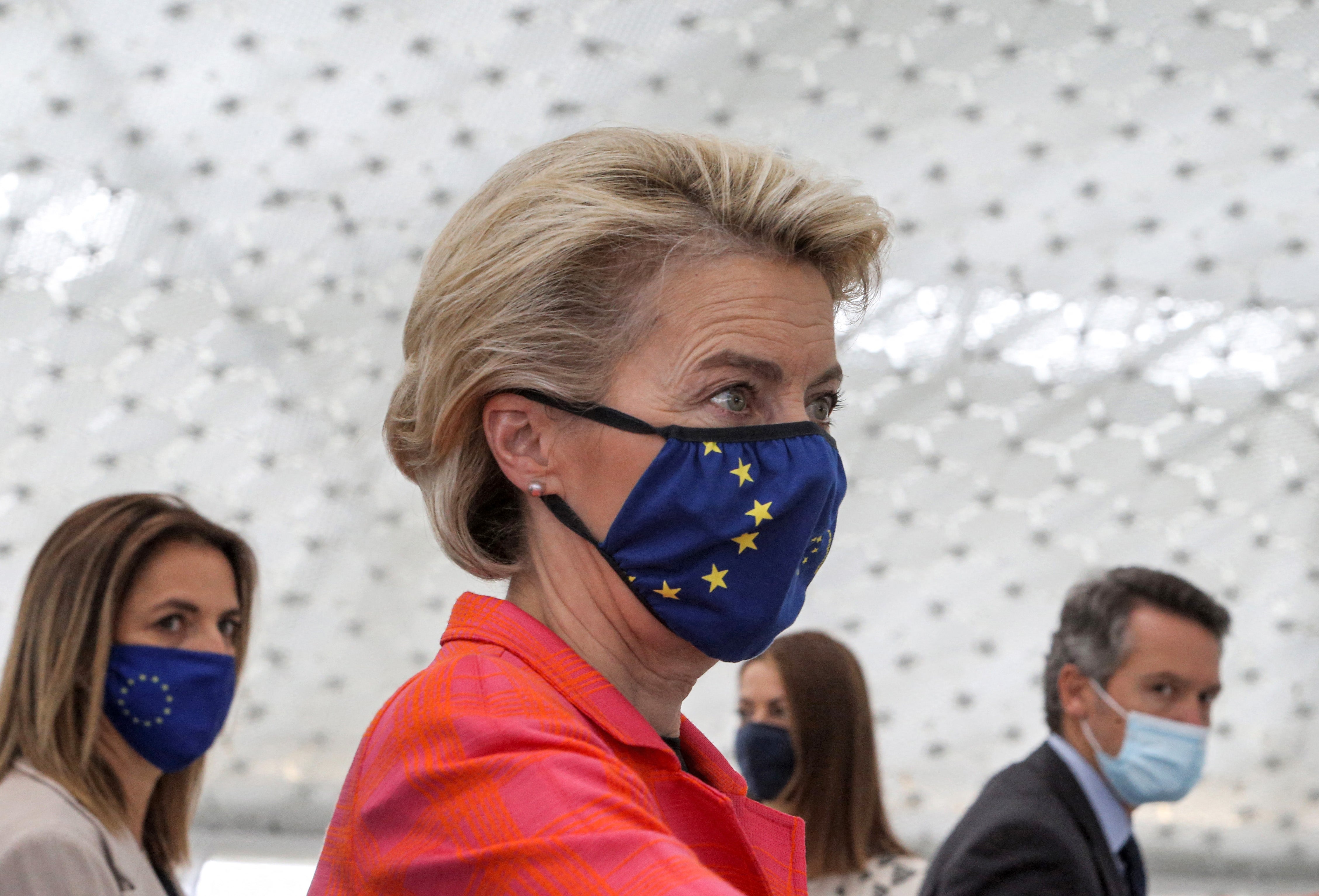EU will ‘never, ever’ accept Cyprus two-state deal says Von der Leyen
‘I want to repeat that we will never, ever accept a two state solution. We are firm on that and very united’

Your support helps us to tell the story
From reproductive rights to climate change to Big Tech, The Independent is on the ground when the story is developing. Whether it's investigating the financials of Elon Musk's pro-Trump PAC or producing our latest documentary, 'The A Word', which shines a light on the American women fighting for reproductive rights, we know how important it is to parse out the facts from the messaging.
At such a critical moment in US history, we need reporters on the ground. Your donation allows us to keep sending journalists to speak to both sides of the story.
The Independent is trusted by Americans across the entire political spectrum. And unlike many other quality news outlets, we choose not to lock Americans out of our reporting and analysis with paywalls. We believe quality journalism should be available to everyone, paid for by those who can afford it.
Your support makes all the difference.The European Union will “never, ever” accept a two-state deal on ethnically-split Cyprus, Ursula von der Leyen said on Thursday.
During a visit, she said the European Union spoke with one voice on the conflict, which has dragged on for decades and is a key hurdle in Turkey’s ambitions of joining the bloc.
“I want to repeat that we will never, ever accept a two-state solution. We are firm on that and very united,” she told a news conference.
Cyprus was split in a Turkish invasion in 1974 triggered by a brief Greek inspired coup. The south is run by an internationally-recognised government that represents the entire island in the European Union, while the north is a breakaway Turkish Cypriot state recognised only by Ankara.
United Nations-led efforts which predate 1974 events have failed to unite the island. The present stalemate is steeped in disagreements of the form unification could take - a union of two independent states advocated by a new Turkish Cypriot leadership, or as a loose federation advocated by Greek Cypriots representing Cyprus internationally.
Talks in Geneva earlier this year on the matter ended inconclusively.
Disagreement has also focused on competing claims over offshore energy reserves, a dispute connected to quarrels between Turkey and Greece, a key ally of the Greek Cypriots.
“Our neighbours have [an] interest in good bilateral relations. If this is the case, and we also have an interest in good bilateral relations, I want our neighbours to know that if they speak to one of our member states, like for example Cyprus, in whatever tone, they speak to the European Union,” Ms von der Leyen said.
Reuters
Join our commenting forum
Join thought-provoking conversations, follow other Independent readers and see their replies
Comments